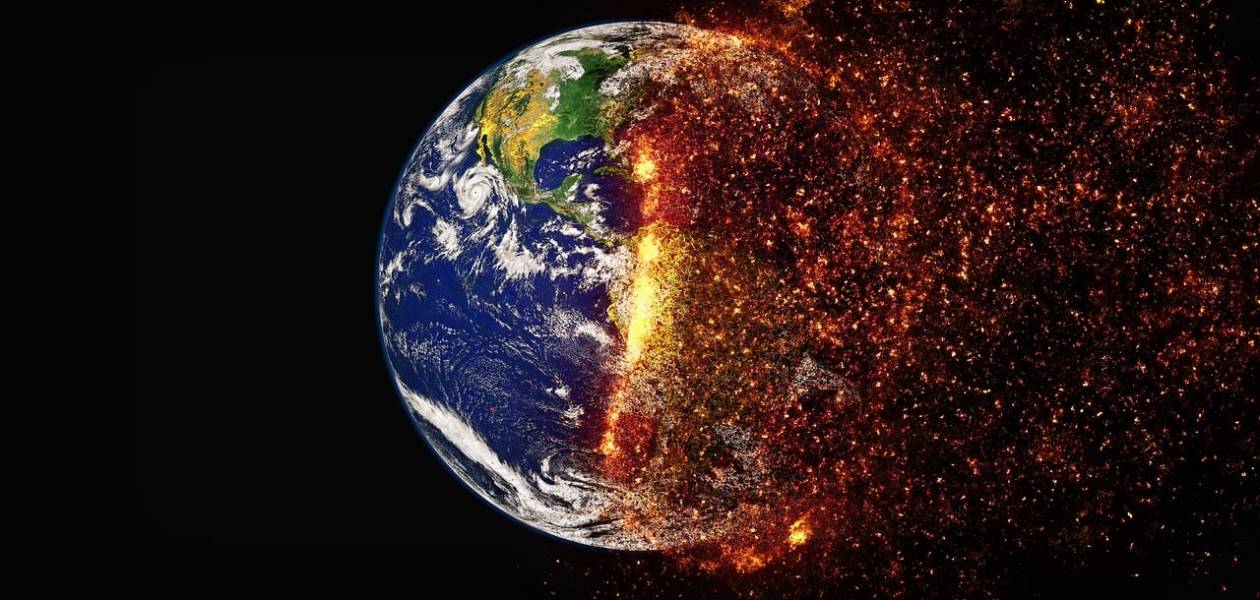
For millions of years, the Earth has experienced natural cycles of glaciation and warming, regulated by various environmental factors. However, in recent decades, an alarming acceleration of global warming has been observed, with potentially disastrous consequences for the planet and its inhabitants. This article explores the history of the periods of glaciation and warming of the Earth, as well as the impact of human activity on the rapid increase in temperatures and its consequences.
The Periods of Glaciation and Global Warming
-
The Ice Ages Over the course of the Earth's geological history, periods of glaciation have followed one another, resulting in the formation of vast ice caps covering immense expanses of land. The main causes of these periodic glaciations are the variations of the astronomical parameters of the Earth (such as the Milankovitch cycles) and the complex interactions between the atmosphere, the oceans, the ice caps and the biosphere.
-
The Interglacial Periods Between the glacial periods, phases of warming, called interglacial periods, allowed the ice to melt and the temperatures to rise. These periods generally favored the development of life and had an impact on the evolution of ecosystems.
Glacial and interglacial periods have succeeded each other over the last million years of the Earth's geological history. Here are some examples of these periods with their approximate dates:
Ice Ages:
- The Gelasian: about 2.58 million to 1.80 million years ago
- The Calabrian: about 1.80 million to 0.78 million years ago
- The Mindel-Riss: about 0.45 million to 0.24 million years ago
- The Riss-Würm: about 0.24 million to 0.07 million years ago
Interglacial periods :
- The Eemian: around 130,000 to 115,000 years ago
- The Holocene: beginning around 11,700 years ago until today (corresponding to the time since the end of the last ice age until today)
It is important to note that exact dates may vary depending on sources and geological studies, but these time intervals give a general idea of glacial and interglacial periods in Earth's history.
Acceleration of Global Warming
-
The Impact of Human Activity Over the past few centuries, human activity, including massive industrialization, has introduced massive amounts of greenhouse gases (such as carbon dioxide and methane) into the atmosphere. . These gases trap heat from the sun in the atmosphere, creating an artificial greenhouse effect that causes global warming.
-
The Determining Role of CO2 Carbon dioxide is the main culprit of the increased greenhouse effect. Massive emissions from the burning of fossil fuels, deforestation and intensive agriculture have dramatically increased CO2 levels in the atmosphere, far exceeding historic levels.
The Consequences of Global Warming
-
Melting Ice and Sea Level Rise Global warming has led to rapid melting of glaciers and ice caps in polar and mountainous regions. This melting is contributing to sea level rise, threatening coastal areas and the people who live there.
-
Extreme Weather Disturbances Global warming intensifies extreme weather events such as storms, droughts, floods and heat waves. These phenomena lead to material damage, human losses and significant impacts on agriculture and ecosystems.
-
Disruption of Ecosystems and Extinction of Species Rapid climate change is disrupting terrestrial and marine ecosystems, putting biodiversity at risk. Many plant and animal species could face challenges to their survival, or even risk extinction.
-
Socio-economic consequences Global warming also has significant socio-economic repercussions, affecting agriculture, food security, drinking water, public health and the economy in general. Vulnerable populations are often the most affected.
Global warming has been accelerating on Earth since the industrial revolution, which began in the middle of the 18th century, i.e. around the second half of the 18th century. Several factors are responsible for this acceleration, the two main ones being:
-
Growing Greenhouse Gas Emissions : Human activity, in particular the massive exploitation of fossil fuels such as coal, oil and natural gas, has led to a dramatic increase in greenhouse gas emissions. greenhouse (GHG) into the atmosphere. Carbon dioxide (CO2) is the most important GHG emitted by these industrial activities, but other gases such as methane (CH4) and nitrous oxide (N2O) also play a significant role. These gases trap heat from the sun in the atmosphere, creating an artificial greenhouse effect that warms the planet.
-
Deforestation and Ecosystem Degradation : Deforestation, primarily for agricultural land expansion and urbanization, reduces the ability of the biosphere to absorb atmospheric CO2 through photosynthesis. Additionally, the destruction of ecosystems such as mangroves, peatlands and rainforests also releases carbon that has long been stored in biomass.
These factors have led to a rapid increase in greenhouse gas concentrations in the atmosphere, far exceeding the levels observed over the past few million years. As a result, the average temperature of the planet has increased significantly over the past decades, with dramatic consequences for the climate, ecosystems and human societies.
It is important to note that global warming is a complex problem, influenced by multiple natural and human factors. However, the preponderant contribution of human activity in the increase in greenhouse gas emissions plays a major role in the acceleration of global warming observed in recent decades. Awareness of this reality is key to taking appropriate action to mitigate the effects of global warming and preserve our planet for future generations.
Admittedly, the periods of glaciation and warming of the Earth are natural phenomena that have shaped the evolution of our planet. However, human activity has considerably accelerated global warming, jeopardizing the fragile balance of our environment. The consequences of global warming are already visible, with devastating effects on ecosystems, populations and the global economy. To reverse this trend, concerted global action is needed, including measures to mitigate greenhouse gas emissions, the adoption of sustainable practices and increased awareness of climate issues.
The future of our planet depends on our ability to act collectively to protect our common home.
Posted on 2023-07-27 12:51








Comments